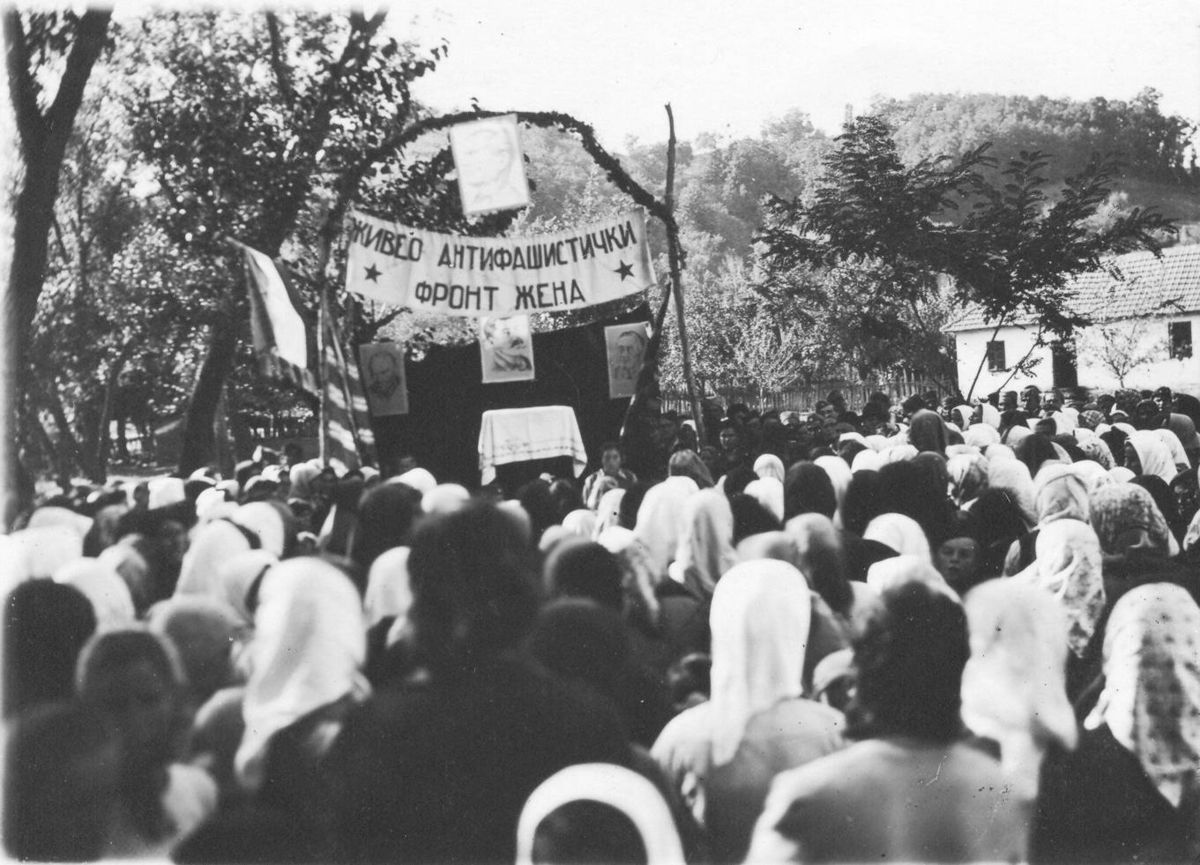
Tijana Okić and Andreja Dugandžić | Introduction: A Word from the Editors
The experience of victory and defeat, past and present, both the AFŽ’s and our own, is a reminder that our new and future struggles and fronts, the battles yet to be won, stand open before us and testify to the creation of the possible even where everything seemed impossible. The revolution took place. Let’s start another one!
Chiara Bonfiglioli | AFŽ’s Activists’ Biographies: An Intersectional Reading of Women’s Agency
The richness of this archive allows for an affective connection with the stories of the women who were part of the AFŽ, while being aware that the encounter with their voices – or the voices of those close to them - has much to do with our own selection, interpretation and invention, or, in other words, with our own location.
Ajla Demiragić | The Role and the Position of the People’s (Progressive) Teaching in the Crucial Years for the Construction of a New Socialist Society in Bosnia and Herzegovina
With their enormous enthusiasm and engagement, progressive people’s teachers laid an important cornerstone for the building of a new state. Together with their colleagues, female teachers organized schools across the country and created new educational policies. In their struggle for new schools they not only changed the curricula, but also established completely new relations with their pupils. Rigid classroom hierarchy was abolished, and new learning and work practices were introduced, based on mutual trust and respect.
Danijela Majstorović | The Creation of the New Yugoslav Woman: Emancipatory Elements of Media Discourse from the End of World War II
Homage to the heroism of a woman who fought in the war and flew an aeroplane to Sarajevo, even though she had to “return from the army to work in fields and factories”, is not something that can be found in today’s media. If she is mentioned at all, it is as a pilot of an airline, not a Red Army pilot.
Boriša Mraović | Heroism of Labor: The Anti-Fascist Front of Women and the Socialist Dispositive, 1945-1953
Determined to do the best they can, women created a “new form of heroism”. It was a heroism that was not like a “rank” that could have been awarded to one woman or one man who could carry it like a medal. It was an effort for the community, a collective heroism built on a mass effort of voluntary labor that worked thousands of bodies to exhaustion before it faced the fact that the set goals were unattainable precisely because they were of heroic proportions, because they implied that one could always work more, harder. Only in a mass effort was it possible to produce the super-human, the heroic – as only the heroic was worthy of the heroically fallen heroes.
Tijana Okić | From Revolutionary to Productive Subject: An Alternative History of the Women’s Antifascist Front
The AFŽ demonstrates that although we cannot repeat the past we can learn from it that only through joint political struggle – which is also always a struggle for (but not only for) rights – can we emancipate ourselves and the conditions in which we live. Emancipation can only come from collective effort, which, paraphrasing Bensaïd, must never abandon itself to the idea that revolution is impossible.
Adela Jušić | About the Illustrations
The stories we recount here are stories of an era, of a struggle, of a heroic age. Thus, these illustrations do not only reflect the spirit of the age or depict specific events, they do so in the present moment, from today’s perspective, not only as a historical depiction of the past but as a contemporary political act.
Glossary
Glossary of group acronyms, organizations, and terms.
 Viewpoint Magazine
Viewpoint Magazine